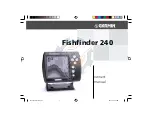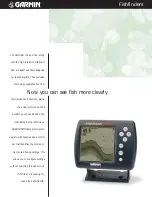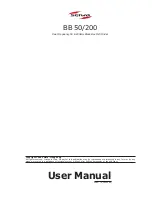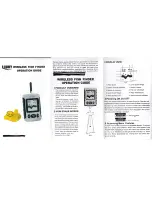
60
5 – Maintenance and Troubleshooting
Periodically check the display unit, cable, and transducer. Be sure all
components are free of corrosion and are securely mounted. Check all
cables for signs of chafing or abrasion. Be sure all of the connections to
the boat’s DC power and ground system are clean and tight.
Cleaning Instructions
Always keep the display unit clean. Use a soft, clean cloth to wipe off the
display panel. Do not use abrasive cleansers, chemical cleaners or
solvents. Use a glass cleaner or a suitable general-purpose detergent.
If you operate your boat in salt water, you will have to protect the hull with
antifouling paint. Use caution when sanding or cleaning the outside of the
hull near the transducer. Harsh cleaning solvents such as acetone may
damage the transducer.
Sea growth can collect quickly on the bottom of the transducer. This can
reduce the performance in just a few weeks. To prevent this, coat the
bottom of the transducer with a thin layer of paint. Use only a water-based
antifouling
paint,
or a water-based paint specifically designed for transduc-
ers. Apply it with a brush.
If your transducer becomes fouled or stops working because of sand or
sea growth, use a stiff brush to clean it. You may sand the surface with a
fine-grit wet or dry sandpaper (#320 grade or finer), but this will affect the
performance of the unit when the boat is moving at higher speeds.
Troubleshooting Suggestions
If the unit is not working correctly, there may be a simple cause. Before
you call for service help, please check these points:
The FishFinder display unit will not turn on –
1.
The unit may actually be operating, but the contrast may have been
set to the “full light” or “full dark” setting. Turn on the unit by pressing
the
PWR
and
CLEAR
buttons at the same time to change all settings to
the factory defaults. See the default settings on page 59.
2.
If the power wiring includes a fuse, it may be blown. Also check the
circuit breaker or main battery switch.
Maintenance and Troubleshooting



































